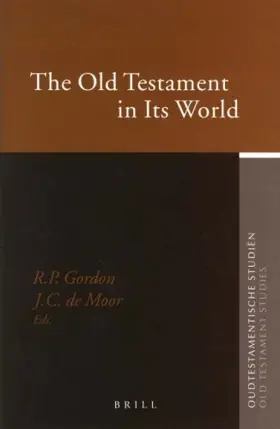

The Old Testament In Its World
Pages
293
Publisher
Brill
Published
11/30/2004
ISBN-13
9789004143227
Discoveries in sites revealing the ancient cultures of the Near East and Greece have contributed much to a better understanding of the Old Testament. As new finds constantly add new information, this precious evidence has to be (re)evaluated time and again. In this volume members of the Society for Old Testament Study in the United Kingdom and Ireland as well as members of the 'Oudtestamentisch Werkgezelschap' in the Netherlands and Belgium join forces to undertake this demanding task. Egyptian, Sumerian, Babylonian, Assyrian, Neo-Hittite, Aramaic and Greek texts are inspected in order to establish whether or not they are relevant to the understanding of the Hebrew Bible.
Reviews
This important volume, co-edited by Robert P. Gordon (Cambridge University) and Johannes C. de Moor (Free University Amsterdam), contains fourteen chapters written by European scholars and revisits the importance of comparative data for the task of biblical interpretation. While this is not a new approach, due to new discoveries, the reevaluation of existing data, and the development of new methods of biblical interpretation, the comparative method requires a regular stock-taking. Surprisingly, none of the chapters deals with the larger methodological issue of the use of comparative data per se, which appears to be taken for granted. In a day and age where biblical interpretation seems to be more concerned with social-scientific and reader-focused methods, the presupposition shared by the contributors (i.e., that comparative data from the ancient Near East is relevant, helpful, and even needed) is refreshing, even though I suspect that some reviewers will find the studies a step back to some type of comparative method of an Albrightean tint with its supposed “parallelomania.” All papers were read during two meetings in 2003, held at Birmingham (6–8 January) and Cambridge (21–23 July) and were organized by The Society for Old Testament Study and (for the second meeting) the Oudtestamentisch Werkgezelschap in Nederland en België. As is the case with many essay collections, the chapters vary widely in methodological presuppositions and scope.
[Full Review]
